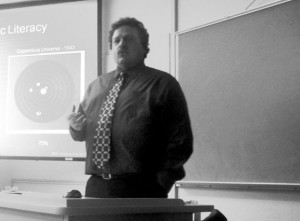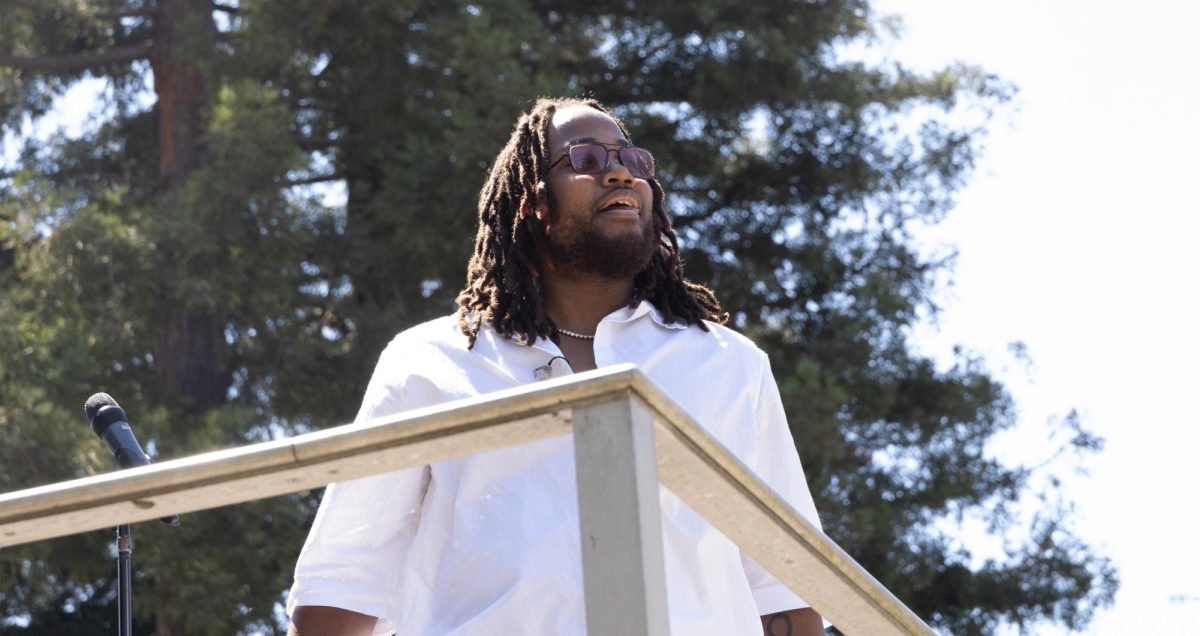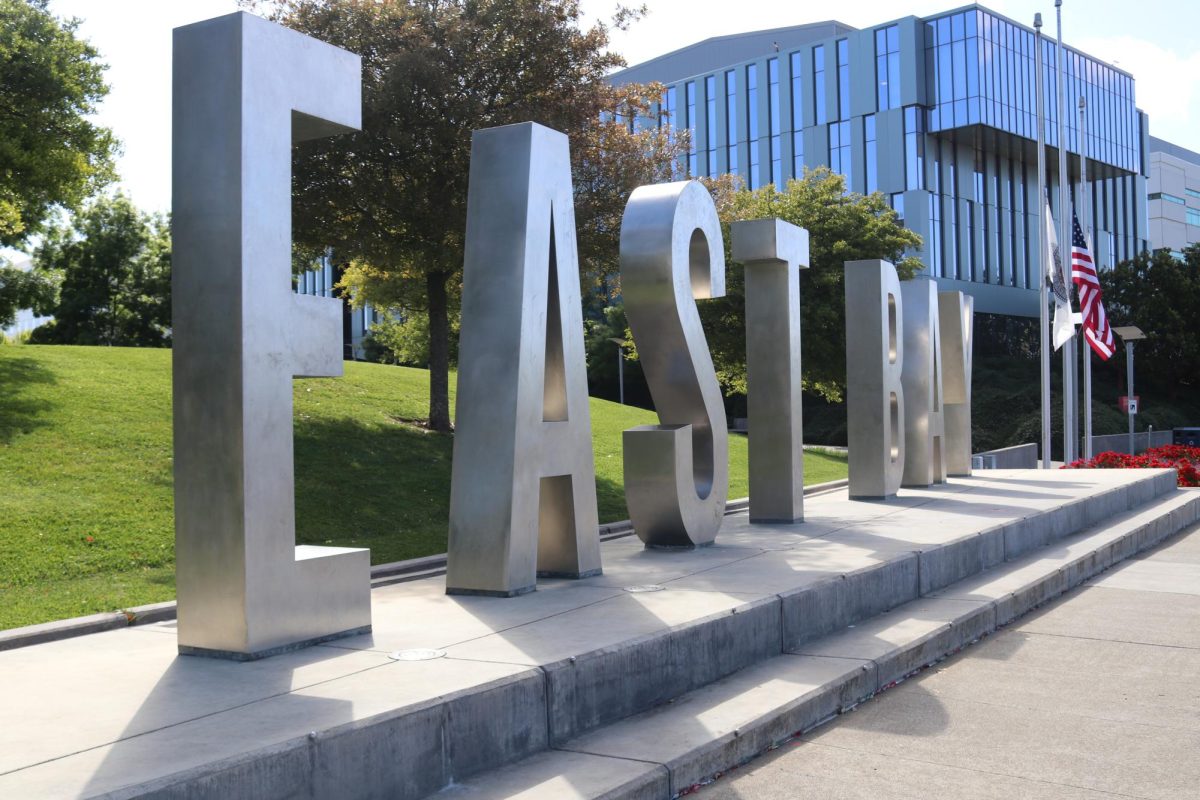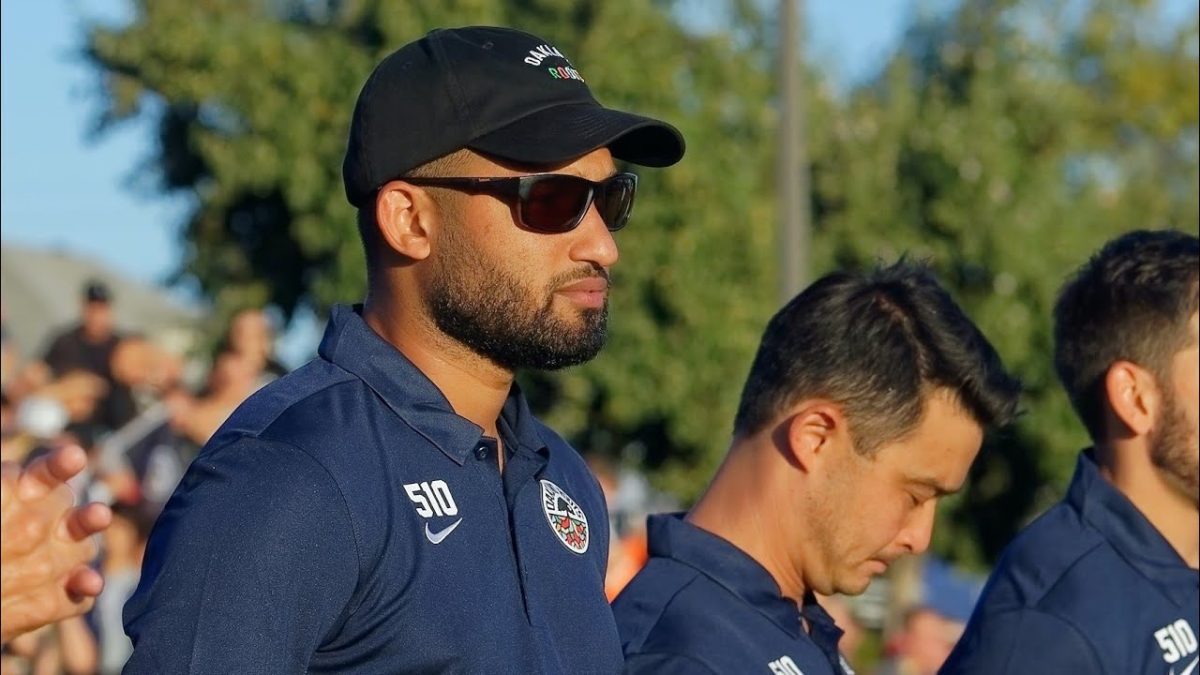
Recently appointed CSU East Bay Provost and Vice President of Academic Affairs, Dr. James Houpis, took off his administrator hat on Thursday evening as he addressed a classroom of geography students with a presentation titled “Science and Climate Change.”
Houpis, who worked as a scientist in the Health and Ecological Sciences Division at Lawrence Livermore National Laboratory for ten years before beginning his career in academia, displayed his knowledge of the natural sciences with respect to the formation of government policy. This is important, of course, now that the world—specifically the United States—is grappling with itself over the increasingly important issues surrounding global warming.
As Congress continues to debate EPA regulations and the overall impact of recent reports concerning carbon dioxide emission, Houpis believes that climate change is not a matter of personal or political opinion.
“The climate is changing,” he told the students. “We’ve passed the point of no return. Dealing with climate change, we need to learn to adapt, not prevent.”
Houpis used a historical comparison to Nicolaus Copernicus’ revolutionary idea of a heliocentric universe, which challenged centuries of traditional scientific and religious beliefs in the 16th century. It was not until after his death that people realized the validity and true impact of the Polish astronomer’s work. Houpis fears that it will take people just as long in the present day to face the facts about climate change.
These “deniers of science,” as Houpis calls them, exist today in the form of organizations such as CO2 Science, which are backed by special interest groups, including major oil companies. He believes that it was the work of these organizations with questionable credibility, most notably the Oregon Institute of Science and Medicine, which caused the United States not to sign the Kyoto Protocol in 1997.
Since then, Houpis believes that scientific data has proven the impact that humans have on climate change beyond a shadow of a doubt. However, politicians continue to use discredited information and emotional rhetoric to prevent Washington from coming to an agreement.
“We’ve turned Congress into a science court,” Houpis attested, in which “crackpots on both ends of the argument” are allowed to continue to debate with each other on an issue that should have already been decided. “It’s crippling the United States from coming to any accurate consensus of scientific policy.”
In fact, Houpis used the extreme example of Holocaust deniers to show that anything can be refuted and that there are some things that must be accepted as irrefutable truths.
“To not believe in climate change you have to believe that scientists are wrong and that there is a vast conspiracy,” said Houpis.
Thus, those who bring religion into the argument have failed to grasp the concept of separating their church from everybody else’s state.
“God is a belief; it doesn’t exist in the world of science,” said Houpis who stated that he prescribes to the notion of God in his own personal beliefs.
The impression given is that the country appears to be barely staying afloat, slowly sinking deeper as the waters around us continue to rise.
Houpis believes that a galvanizing moment is needed, such as John F. Kennedy’s 1962 “We choose to go to the moon” speech to rally the country together. In the absence of such an event, it appears we have failed to move past a point of political back-and-forth motivated by special interests and personal dogma.
“The main thing is taking the opportunity to switch the society into renewable technologies,” said Houpis. Something that appears to be happening as the prevalence of wind and solar energy continues to spread; however, it is the speed of this change that has scientists like Houpis worried. For them, there is more to be done than just watching and waiting.
Houpis ended his talk by quoting the immortal words of famed poet Dylan Thomas, “Do not go gentle into that good night, old age should burn and rave at close of day; rage, rage against the dying of the light.”


















